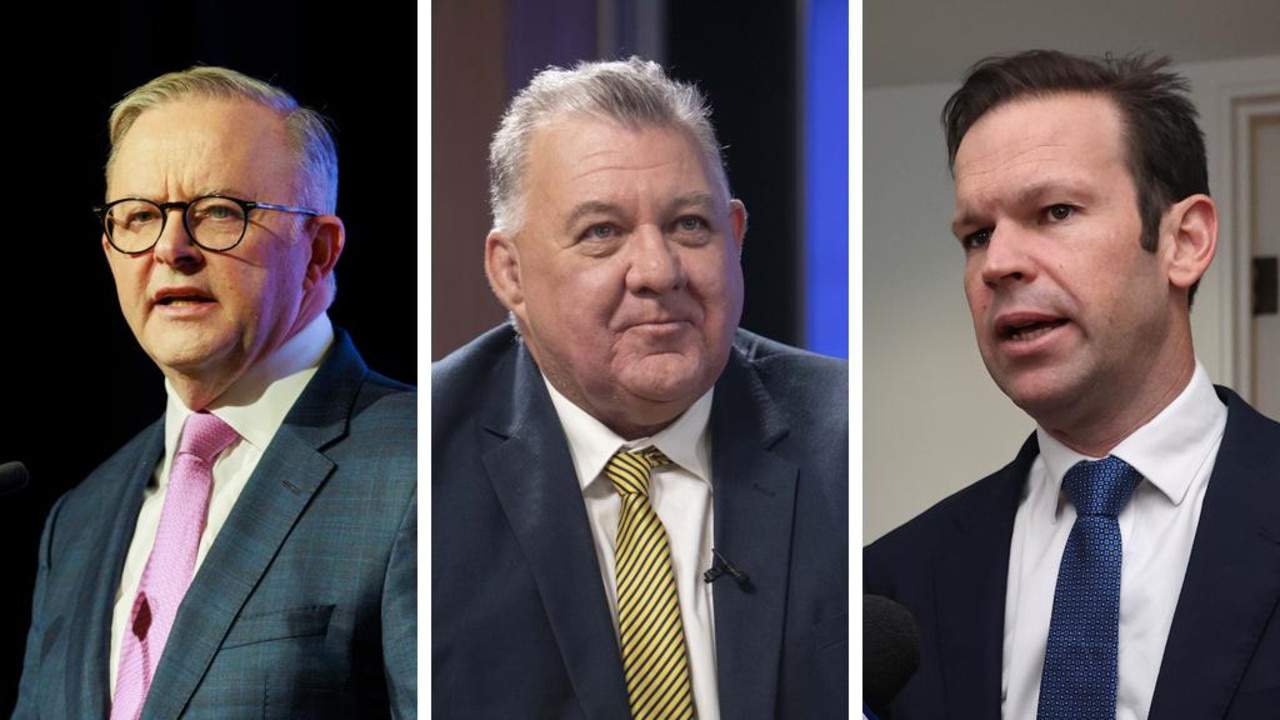Plans to offer “climate refugees” from the island nation of Tuvalu a path to residency in Australia have faced pushback amid disputed claims about liveability on the remote atoll.
Prime Minister Anthony Albanese signed a wide-reaching pact with Tuvalu’s Prime Minister Kausea Natano this week, including an offer of residency to 280 Tuvalu citizens each year.
The remote central Pacific island nation is one of nine low-lying countries recognised internationally as being at risk from rising sea levels driven by climate change in coming years.
The deal has since come under criticism both from climate activists, who condemned the move amid a continued investment in fossil fuels, as well as so-called climate sceptics.
United Australia Party leader Craig Kelly slammed the PM on Thursday as being a “bumbling fool” that was “not across the detail … played off a break by Pacific Island leaders”.
“The peer-reviewed science is clear … Tuvalu grew in size by 73 hectares or 2.9 per cent, something even ABC Factcheck was forced to admit,” Mr Kelly wrote on X, formerly known as Twitter.
The post appeared to refer to a 2018 study investigating claims Tuvalu and other atoll nations were “expected to be rendered uninhabitable over the next century”.
The study, which encouraged “opportunities for adaptation” in remote nations, found about 74 per cent of the islands had increased in size, while 27 per cent decreased over the past four decades.
Changes in sediment and coral being washed ashore were suggested as being causes of the growth in the study, which Tuvalu’s former-PM Enele Sopoaga rejected upon its release.
Mr Sopoaga further refuted claims that the expansion of the nation’s shoreline equated to habitable land, according to a 2018 report by Pacific based news site, the Fiji Times.
Nonetheless, Mr Kelly’s received the backing of Queensland senator Matt Canavan, who said: “Why are we taking “climate” refugees from an island that is growing in size?”
Right-wing advocacy group Advance Australia also questioned climate risks in an article citing one of the 2018 reports co-authors, geomorphologist Paul Kench.
In response Mr Kench told Agence France-Presse: “At no point do we suggest that climate change is not happening or that small islands will not be impacted by climate change.
“Indeed our work shows that island communities face challenging times as they adjust to the ever-changing position of the islands on reef surfaces.
“Such change is likely to become more rapid as a consequence of sea level rise and increased wave activity.”
The pact signed by Mr Albanese, which included security co-operation, also came under fire from climate activists critical of the government’s climate policies.
In May, the Albanese government approved the first new coal mine since last year’s federal election, with activists calling for a comprehensive review of all mining and coal-power projects.
Economist Greg Jericho criticised the pact on Twitter on Thursday, stating: “Guess this will make them (Tuvalu residents) all feel better when the next coal mine is approved.
Richard Denniss, executive director of think-thank the Australia Institute, added: “Remember when Tanya Plibersek said she wanted no more extinctions?
“Now her govt is designing immigration policy for the extinction of Pacific Island states like Tuvalu. Easier to plan for the end of nations than the end of fossil fuels?”
Pacific island leaders have been vocal in recent years on the need for climate action, further fanning tensions with former leader Scott Morrison and the Liberal party.
Announcing the pact on Friday, Mr Albanese described the treaty as “groundbreaking”, saying it formalises Australia as Tuvalu‘s ”partner of choice”.
“It will be regarded as a significant day in which Australia acknowledged that we are part of the Pacific family that with that comes the responsibility to act, to gracious requests from Tuvalu and the relationship between our two nations,” he said.
Mr Albanese did not rule out entering into similar agreements with other Pacific Island nations impacted by climate change, saying that he would “make further announcements at an appropriate time…we’re open to approaches form other countries on how we can enhance our partnerships,” he said.
“Tuvalu is extremely vulnerable to the impact of climate change, especially rising sea levels and is trying to preserve its culture, traditions and land,” Mr Albanese said.
“I believe that developed nations have a responsibility to provide assistance and that is precisely what we are doing.”
Australia will also provide an additional $16.9m for the Tuvalu coastal adaptation project to expand the main island by approximately six per cent.
